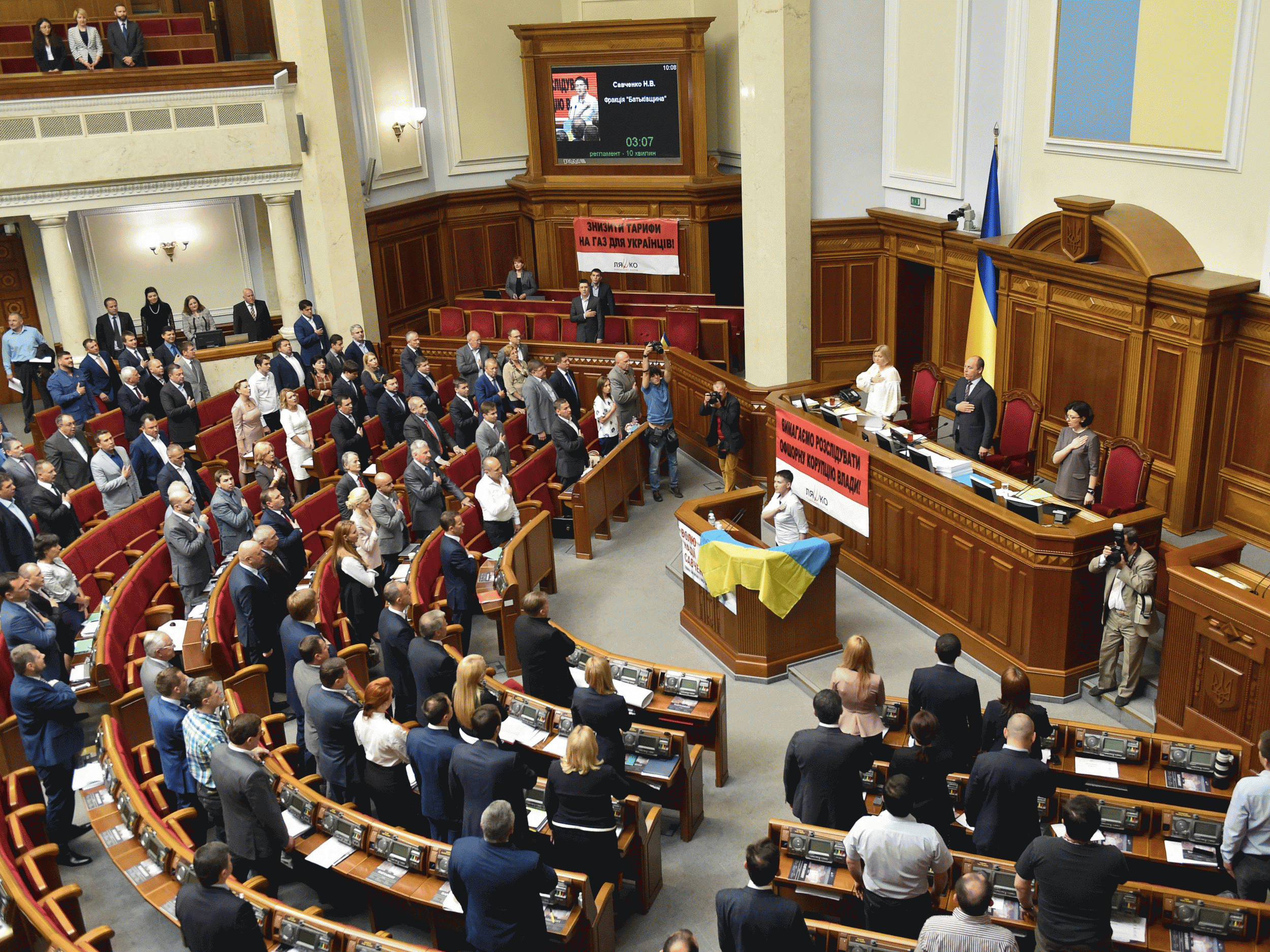Ukraine is on the brink of media freedom, but oligarchs are set to put a stop to it
TV is the main source of information for 84 per cent of Ukrainians. But according to a Council of Europe poll, 90 per cent of Ukrainians don't know what a public broadcaster is. Among oligarch-dominated media, an independent broadcaster could be a breakthrough for transparency and trust in politics

Your support helps us to tell the story
From reproductive rights to climate change to Big Tech, The Independent is on the ground when the story is developing. Whether it's investigating the financials of Elon Musk's pro-Trump PAC or producing our latest documentary, 'The A Word', which shines a light on the American women fighting for reproductive rights, we know how important it is to parse out the facts from the messaging.
At such a critical moment in US history, we need reporters on the ground. Your donation allows us to keep sending journalists to speak to both sides of the story.
The Independent is trusted by Americans across the entire political spectrum. And unlike many other quality news outlets, we choose not to lock Americans out of our reporting and analysis with paywalls. We believe quality journalism should be available to everyone, paid for by those who can afford it.
Your support makes all the difference.Ukrainian business moguls still own seven of the country’s eight major TV stations.
But, three years after mass protests gripped the nation, demanding political and social reform, the old system continues to resist change – including to its media.
There are signs of progress. Two years ago, a new law passed requiring Ukraine’s only state-owned National TV and Radio Broadcasting Company (NTU) to become an independent, public broadcaster. The NTU was restructured with the appointment of an independent board of trustees representing parliament, civil society and media professionals, and public investment amounting to 0.2 per cent of the state budget. Yet, even with the NTU’s single-digit percentage share of the media market, the change has been viewed as a threat to the interests of the country’s political and business elites.
As well as seeing the state-owned Soviet-style TV channel turned into a modern high-quality public broadcasting company, Ukraine’s current reforms envisage the de-nationalisation of print and broadcast media, transparency of media ownership, digitalisation and an independent regulator.
Creating a democratic, transparent and accountable media landscape is crucial to Ukraine’s transformation. But there are signs that the reforms are stalling. The recent resignation of the NTU’s Director General, Zurab Alasania, sends a worrying signal. His departure was prompted by proposals to drastically cut the broadcaster’s budget for the coming financial year. Alasania took his decision, he said, to draw greater public attention to moves that undermined the reforms. He also cited his refusal to take part in illegal financial transactions in preparation for the 2017 Eurovision song contest as a factor.
TV is the main source of information for 84 per cent of Ukrainians. But according to a Council of Europe poll, 90 per cent of Ukrainians are unaware of what a public broadcaster is. In an environment dominated by oligarch-controlled media, an independent broadcaster could be a game changer in terms of transparency and trust. These channels define the discourse and shape the political agenda in Ukraine, and contribute to the exceptionally low levels of public trust in politics.
According to a recent International Republic Institute poll, not a single prominent politician has an approval rating of over 27 per cent. The President’s approval rating is 20 per cent. The overwhelming majority of Ukrainians are dissatisfied with the pace and depth of reform in the country.
There is also a desperate lack of effective, objective public communication about media reforms. They appear to lack necessary political will and western attention. Neither the Ukrainian National Reform Council nor the Brussels-based EU Ukraine Support group have appointed anyone to oversee the transformation.
This isn’t the first attempt to establish a public broadcaster in Ukraine. Following the 2004 Orange Revolution, an effort was hijacked by allies of the then President Victor Yushchenko, who sought to preserve media control ahead of the 2006 parliamentary elections.
The current reform process has already moved further – which is why it is too important to fail. The threat of reform being reversed is real. The likelihood of early parliamentary elections is increasing, as the current government coalition is fragile. This could, once again, increase the temptation to scrap or further stall the reforms. It would only take one talented demagogue to mobilise discontent and deliver victory to critics.
There is a pressing need for greatly increased public engagement and open debate on the issue. A recent open letter in support of the reforms was signed by just 109 media professionals, and went largely unnoticed by the general public. There was no major statement either from the EU or from any key western figures on Alasania’s resignation.
Ukrainian society needs a high-quality public broadcaster. Proponents of reform should ensure that the 2017 budget guarantees funding for the NTU and its charter enshrines its independence from political influence.
In the meantime, the international media can play an important role in drawing attention to the reforms, giving a voice to Ukraine’s reformers and providing much-needed objective reporting on the process.
Orysia Lutsevych is manager of the Ukraine Forum in the Russia and Eurasia Programme at Chatham House
Join our commenting forum
Join thought-provoking conversations, follow other Independent readers and see their replies
Comments